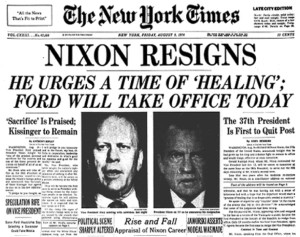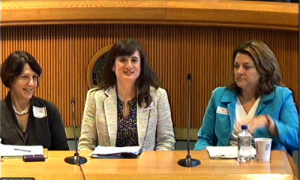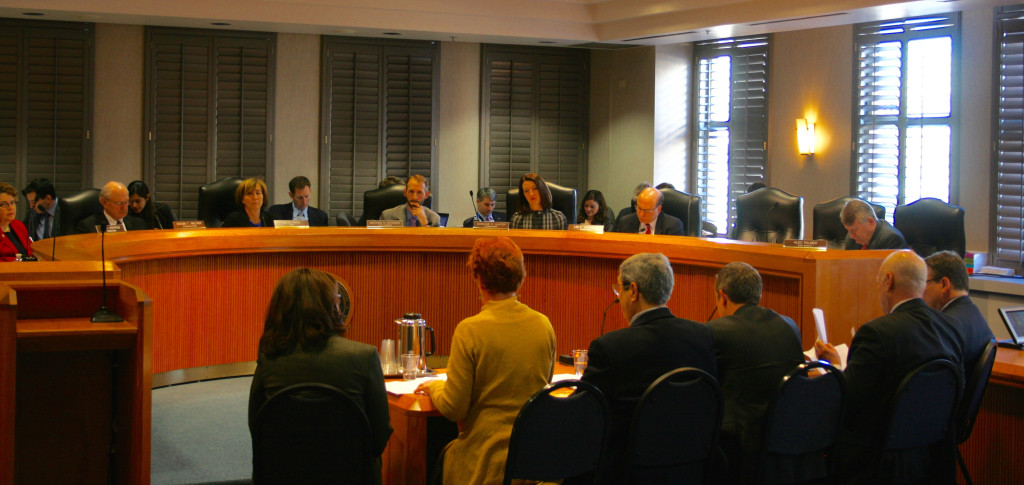Ann Ravel, the Democratic Chair of the Federal Election Commission, made headlines early this month when she told The New York Times that her agency was “worse than dysfunctional” and that “the likelihood of the [federal campaign finance] laws being enforced is slim.” Democratic Commissioner Ellen Weintraub chimed in, saying “the few rules that are left, people feel free to ignore.” Such statements are, of course, catnip to the so-called “reform” community—groups that want more regulation of political speech—and to news reporters covering “money in politics.”
All of this is, not to put too fine a point on it, patently absurd, but one must presume it serves a purpose for the Commissioners. The question is, what purpose?
Let’s start, though, by clarifying the absurdity, since similar sentiments have long been the common currency of self-styled “reformers.” Even after nearly a decade of both court ordered and legislatively enacted deregulation, by almost any measure, campaign finance at the federal level is more heavily regulated than at any time in the nation’s history prior to 1975. By a great many criteria, especially for political parties and their officials, it remains more highly regulated than at any time prior to 2003, when the Bipartisan Campaign Reform Act, (a.k.a. “BCRA” or “McCain-Feingold”) took effect. In terms of compulsory disclosure of private political giving, political speakers are more heavily regulated than ever before in our nation’s history.
The heart of America’s failed experiment with regulating political campaigns since the 1970s are the limits placed on contributions to candidate and political party committees. Those remain in full force. If you don’t think so, try to contribute $6,000 to the Hillary Clinton campaign. Reporting requirements—the other cornerstone of regulation—likewise remain in full force, and there is no chance that Rand Paul will decide to assert his libertarianism by refusing to file proper reports with the FEC, or that the information reported will not be publicly disclosed in accordance with law.
Much has also been made of the coy game politicians are forced to play these days, holding off on any declaration of candidacy until the last possible moment. Less asked is “why”? The reason is because declaring oneself a candidate for president or any federal office causes a plethora of sticky red tape to begin unraveling pursuant to the Federal Election Campaign Act. If that law really isn’t “being enforced,” it appears to be news to those considering a run for office, who seem deathly afraid of declaring their candidacy and triggering the provisions of the Act.
What Commissioners Ravel and Weintraub really mean when they say the law isn’t being enforced is that, if they were the only members of the Commission, they would pursue highly contested interpretations of the law, of the type that the courts have so often and so regularly struck down as violating the First Amendment. One, in particular, is new disclosure regulations that would mimic the so-called DISCLOSE Act, a Democratic Party hobby horse, defeated in each of the last three Congresses and going nowhere in this one. Another would appear to be an aggressive interpretation of the doctrine of “coordination,” creating new standards that would convert constitutionally protected independent speech into regulated “coordinated in-kind contributions” to candidates. A third might be an equally aggressive effort to decide that certain politicians must be candidates for office, whether or not those individuals have declared a candidacy or met the traditional statutory thresholds.
These are all complex issues, and on each the two Commissioners can make a plausible (if to me ultimately unconvincing) case. But the point is that the two Democratic Commissioners don’t want to have to actually make that case, because if they did it would become apparent a) how complex the issues are; b) how little legal authority supports their arguments; and c) how sharply contested their view of “what the law is,” actually is. And, we might add, it would also reveal how neatly and conveniently many of their priorities line up with what elements of the Democratic Party desperately want, and see their interpretations as a way to gain a campaign edge over Republicans.
The FEC is an interesting government agency, in that it’s six commissioners can include no more than three from any one political party. In practice, this means Republicans name three, and Democrats name three. Four votes—meaning some degree of bipartisan approval—are necessary for the FEC to take action in most situations.
Those pushing for more government regulation of political speech have long argued that this structure means that the FEC was “created for gridlock” or “designed to fail,” but the truth is that the Commission was set up that way to maximize its chances for success. From the start, Congress understood that the work of the FEC would be political in a way that the work of other federal agencies is not. In fact, the FEC doesn’t really even regulate elections—it regulates campaigns for office. That is to say, it regulates how candidates campaign, and how and how much U.S. citizens and others can participate in campaigns.
 The FEC was created after the Nixon Administration’s Justice Department pursued criminal campaign finance charges against pro-impeachment critics. It then threatened The New York Times with criminal charges if it published similar ads. Congress correctly rejected the idea of letting a future Nixon effectively control a government agency tasked with regulating political campaigns.
The FEC was created after the Nixon Administration’s Justice Department pursued criminal campaign finance charges against pro-impeachment critics. It then threatened The New York Times with criminal charges if it published similar ads. Congress correctly rejected the idea of letting a future Nixon effectively control a government agency tasked with regulating political campaigns.
But even without Nixon’s targeting of political opponents, it is easy to see that any rules established by such a commission, or enforcement undertaken, would be easily discredited if perceived to be an effort to help the party in control of the Commission. Deep down the FEC’s critics know this—when an FEC enforcement action is denounced as “partisan,” they are the first to defend the Commission by pointing to the bipartisan requirement for any Commission action. We also see this understanding elsewhere, as in the near frantic effort to find liberal groups hassled by the IRS to rebut the claim that the IRS targeting of tea party groups was part of a partisan plot; or in the efforts to claim that Wisconsin’s Star Chamber “John Doe” investigations into conservative groups include the involvement of Republican prosecutors. The bipartisan requirement, far from being “designed for failure,” is what makes regulation palatable at all.
Beyond that, the idea that the Commission routinely “deadlocks” is, to put it charitably, horse pucky. Historically, the Commission ends up with 3-3 tie votes on substantive matters less than five percent of the time. It is true that that number has risen sharply in recent years, from approximately one percent in 2003, Commissioner Weintraub’s first year, to approximately fifteen percent in recent years, but that is a far cry from the typical rhetoric that the Commission simply cannot function. Furthermore, in most situations, a 3-3 vote cleanly decides the issue, as much as a 3-2 “no” vote would do on a five-member body.
Those numbers also belie the Ravel/Weintraub complaint that the problem is that their Republican colleagues “won’t enforce the law.” If roughly eighty-five percent of Commission votes are decided by clear majorities, then it would appear that either: a) the Democrats are regularly joining the Republicans in “refusing to enforce the law”; b) that Republicans do regularly “enforce the law”; or c) that on the vast majority of charges, no law is broken. This last would mean that the “faithful to the law” Democrats could join the Republicans in voting to dismiss on most cases, but it would also suggest that far too many complaints are being investigated and that false or unsubstantiated complaints far exceed valid complaints. This would be a major problem for the FEC and, given the chilling effect investigations can have on protected speech, a major constitutional problem for the law itself.
As none of those explanations fit the Commissioners’ allegations, we are back to square one. The two Democrats (the third Democratic appointee, Commissioner Steven Walther, has not joined his colleagues in making such provocative claims) seem to hope that if they just declare that the “law won’t be enforced,” the ever-credulous campaign finance press corps will jump on what it sees as a great story and report it just as they are told.
A trick to passing campaign finance regulations has always been to keep the conversation at a high level of abstraction. Most Americans have an instinctive distaste for money in politics. But when campaign finance regulation is brought down to the level of the concrete, public opinion changes. Surveys show overwhelming support for disclosure of campaign contributions, but that support drops quickly below fifty percent when respondents are asked if their own contributions and personal information should be disclosed. Many supposedly hate Citizens United, but I have found precious few citizens willing to defend the position the government argued in the case—that a documentary movie about a political candidate could be banned in an election year—or the corollaries that the government offered up—that it could equally limit books and internet blogs that advocated for or against candidates.
When lobbyists for the so-called “reform” community were drafting what eventually became “BCRA,” they found lots of legislative support for tougher coordination rules, until they tried to draft the actual legislation, when the project fell apart and the legislation punted the issue to the FEC, which was tasked with the job of writing new coordination regulations. In short, you pass campaign finance regulation by keeping the conversation away from how it might actually work, and how it actually affects candidates, speakers, and listeners.
Commissioners Ravel and Weintraub apparently seek to keep the debate on the superficial level, in which they can wear white hats and seek to rally the townsfolk against the black-hatted Republican commissioners.
Chair Ravel’s remarks to the Times are little short of defamatory, if they haven’t crossed that line. Essentially, she accuses her colleagues of violating their oaths of office and engaging in what would appear to be impeachable behavior. To publicly announce barely four months after assuming the Chair that one has given up on making the Commission work, and to publicly accuse your colleagues of being essentially dishonest, is the approach of someone who either does not want the Commission work better, is unwilling to try, or who has simply made a serious error of judgment.
During my time on the Commission, from 2000-2005, the ideological and jurisprudential splits among commissioners were rapidly hardening. I was often critical, in public, of certain Commission actions and policies, and of the statutes we enforced. On the other side, my colleague, Commissioner Scott Thomas, was often publicly critical of the Commission for not being aggressive enough in enforcement, and critical of the statutes we enforced as too weak. Our debates were sharp but generally conducted in good faith. I can’t remember a Commissioner ever publicly accusing a fellow Commissioner of simply refusing to enforce, or to be bound by, the law. If one had wanted to play that game, Commissioner Weintraub herself cast a number of votes during our joint tenure on the Commission that one might easily describe, if so inclined, as “refusing to enforce the law.” She would, of course, have vigorously denied such an allegation, pointing to contentions of law or facts supporting her vote. But once such an allegation is made, there really is no common ground for progress. Fortunately, such allegations simply were not made, and we could debate differences in good faith.
This basic norm of good faith was already in some tatters when Chair Ravel joined the Commission in late 2013. For example, in 2008 Democratic Commissioners Weintraub and Cynthia Bauerly (whom Ravel replaced) accused their Republican colleagues in a written Statement of Reasons of “refus[ing] to enforce the law,” and Weintraub has frequently and publicly blamed former Republican Commissioner Don McGahn for destroying harmony at the Commission, a charge McGahn vigorously denies. But going to The New York Times with such an allegation sets a new, extremely low bar.

Panelists at the Public Forum on Women in Politics
They have taken other recent actions that indicate little desire to see a working Commission. Earlier this month, Chair Ravel used the Commission to host a forum to investigate why there are not more women in high political positions, a controversial assumption with a controversial witness list that is exactly the sort of thing past Commission Chairs have avoided, to keep the Commission focused on its mission and not to stoke ideological divides.
Commissioner Weintraub has taken to doing live tweets at public hearings, with often partisan ideological tones. This week, she will offer up a motion once again to have the Commission undertake a rulemaking designed to produce a DISCLOSE Act type regulation. She knows that the motion will not pass, because Republican commissioners question it both as a matter of policy, and as a matter of power, given that Congress has repeatedly rejected such legislation. She has therefore, apparently, taken another unprecedented step: she has laden her doomed motion with a series of simplistic, tendentious, partisan political claims that aim to avoid honest discussion of the issue, rather than promote it. These are not the actions of persons working to promote a functioning Commission. These are the actions of a grandstanding politician wannabe.
It is increasingly difficult to avoid concluding that Commissioners Ravel and Weintraub want the FEC to fail, or better put, to be perceived as failing. Doing so allows them to wear the self-styled white hat of “reform,” while attempting to score political points for their ideological agenda. The failures of campaign finance regulation can be covered up if the public can be convinced that the issue is simply Republican Commissioners who “won’t enforce the law”; and an agenda that neatly folds into the larger political agenda of their party won’t look quite so partisan if it is merely a question of following or not following “the law.”
The Republican Commissioners are capable to defending themselves, and GOP Commissioner Lee Goodman offered a searing rebuttal to Ravel’s New York Times confession earlier this month in Politico. But the agency and its career staff also deserve better than this. And so, most importantly, does the public.
If Chair Ravel really thinks there is nothing to be done at the Commission but to grandstand before The New York Times, perhaps she should resign. If Commissioner Weintraub now sees the Commission’s public meetings as mere opportunities for theatrics and scoring cheap political points, there are others waiting in the wings who would be happy to take her seat for more constructive purposes.
The question that must be asked of the two Commissioners is this: do you want failure and “gridlock”? Or are you willing to put in the effort to make improvements?













